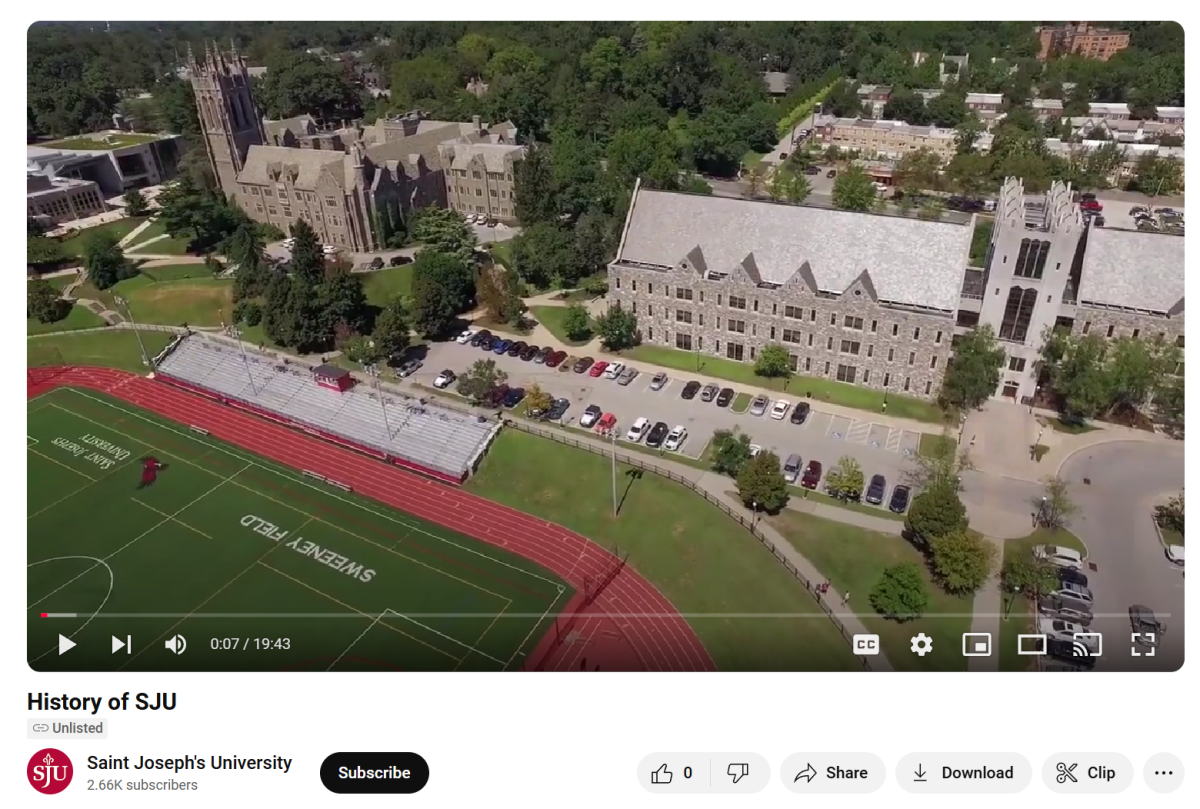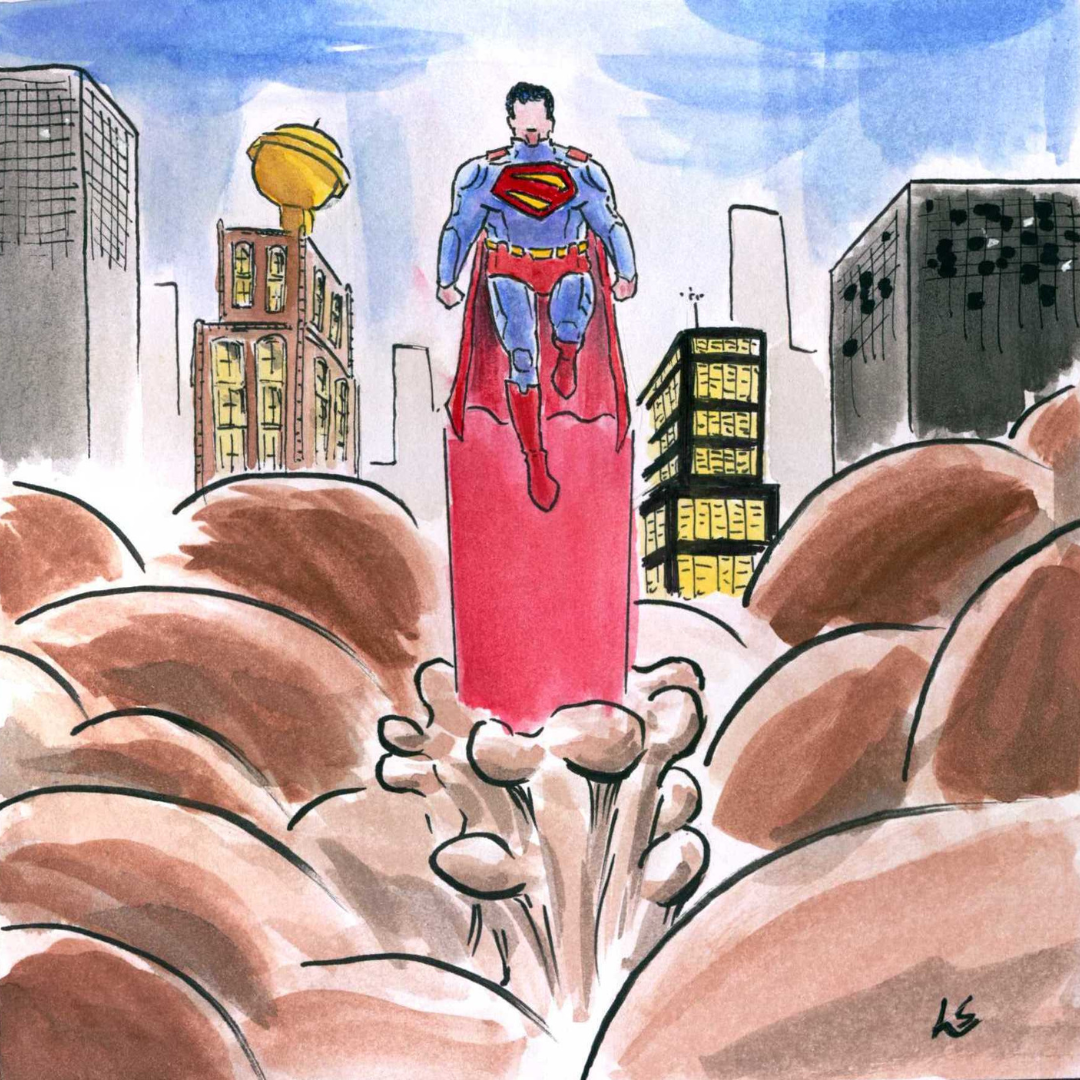A 20-minute video is a gold mine of St. Joe’s history — and a trailer for more that never materialized.
Produced in 2013, the video was supposed to be the first in a three-part series, according to Benjamin Ellis, manager of classroom and event support in the Office of Information Technology. It was produced by Michael Gallagher ’06, M.A. ’14, St. Joe’s video production director from 2011 to 2015, in partnership with the Office of Marketing and Communications.
The video, cataloged by the St. Joe’s Archives, covers the early years of St. Joe’s up to the 1970s. The next two were intended to span the 1970s through the 2010s, Ellis said. However, they were never produced.
The video, which features interviews with 10 St. Joe’s faculty members, staff and administrators, has become a part of the history it attempts to capture. Two of the faculty members interviewed have since died, including Catherine Murray, Ph.D., associate professor of psychology, and Joseph Feeney, S.J., professor emeritus of English. Others have retired, including Elizabeth Linehan, R.S.M., Ph.D., professor emerita of philosophy, and Randall Miller, Ph.D., professor emeritus of history.
Of the many stories relayed in the video, one, told by Feeney and Don DiJulia ’67, former athletics director of St. Joe’s and now an officer in university advancement, is about the “cardboard college,” or temporary prefabricated buildings that were once located where Mandeville Hall sits today. These cardboard boxes were a result of a surge in the undergraduate student population after WWII, DiJulia explains in the video. They were meant to seat students in classes that couldn’t fit in Barbelin Hall at the time. In 1960, when Bellarmine Hall was created, students were invited to tear the cardboard college down.
Another story, relayed by Linehan, is about the name change from Saint Joseph’s College to Saint Joseph’s University. She explains in the video how the change was controversial, since St. Joe’s at the time was known as “the College” throughout Philadelphia. To push back, the faculty tried to form a union. It went to a vote, but the vote to unionize was ultimately rejected by a margin of 68 to 57.
No matter what it has been called, the university’s identity has remained consistent, Linehan told The Hawk.
“SJU has stayed true to its mission, primarily its Jesuit and social justice efforts through service work and programs,” Linehan told The Hawk.
Linehan herself also represents an important part of the university’s history.
“I was the first woman hired on as a tenure track in philosophy at St. Joe’s,” Linehan told The Hawk. “Eventually, I became chair of the department … it was a time when there weren’t very many women in philosophy, and there weren’t very many women on the faculty, for that matter.”
Miller told The Hawk that videos like this one, made up of personal interviews, are valuable.
“Oral histories help us not only learn who we were but actually who we are now,” Miller told The Hawk. “Looking at our past makes us reflect on the present… Oral histories are a way of getting many different voices into the discussion, so you’re not relying upon just printed, official materials.”
But the fact that the video series was never completed also adds to a sense of history unfinished, or at least untold, Miller told The Hawk.
“It’s an incomplete video,” Miller told The Hawk. “There’s nothing that sets it up. There’s no introduction. There’s no rationale. Why are we doing this? And there’s no conclusion. [It] just ends abruptly. It seems like it’s part of a bigger piece, an unfinished piece, or maybe a piece that was finished and pulled out, and as [of] yet, we don’t know for what purpose.”














































